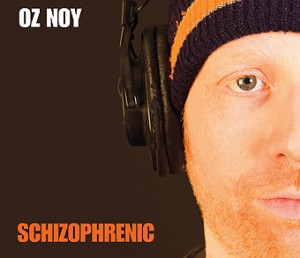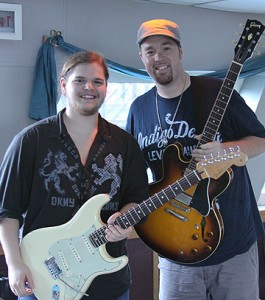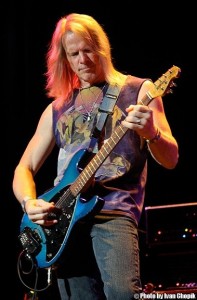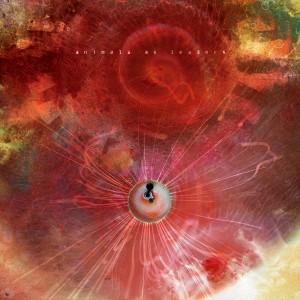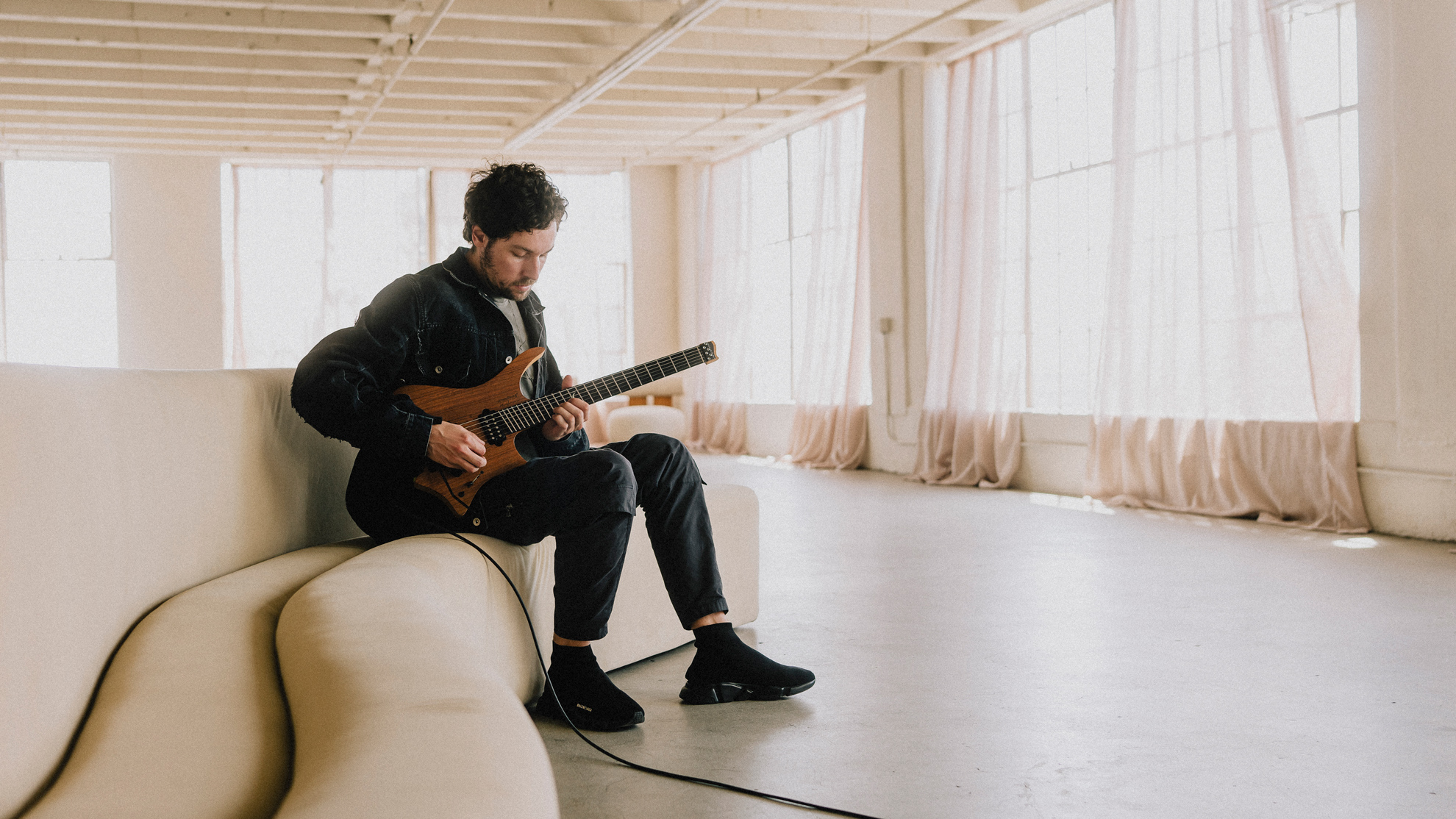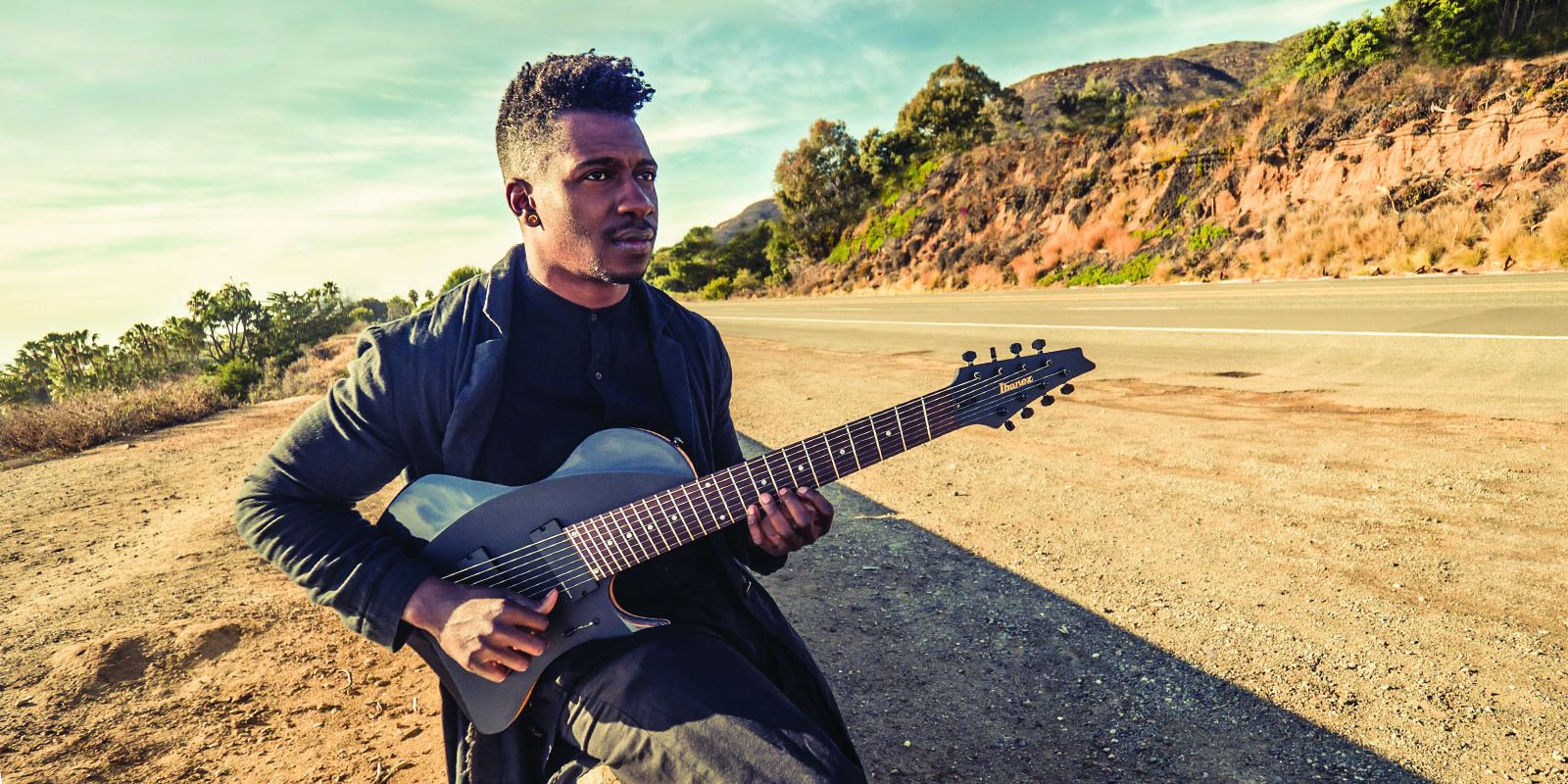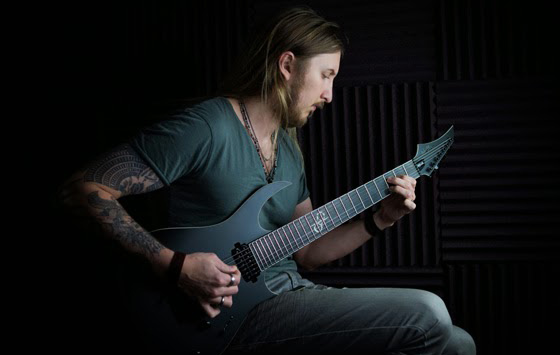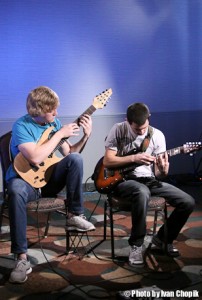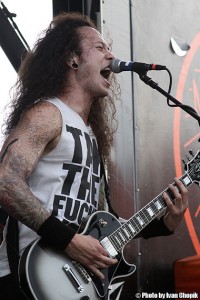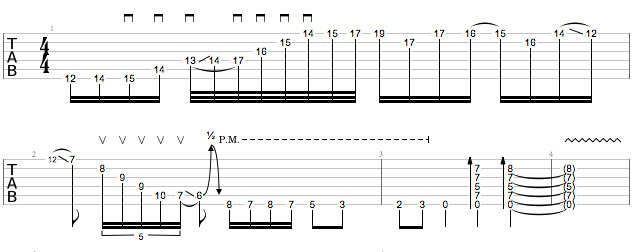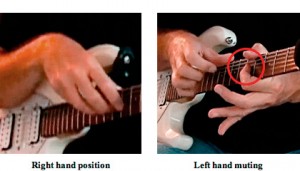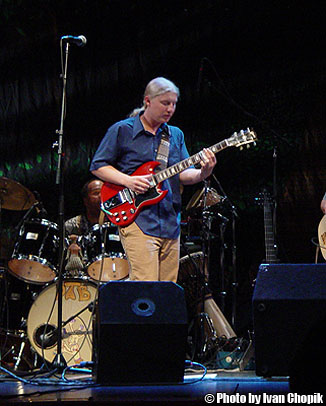 Derek Trucks is a virtuoso blues artist and is also known as one of the greatest slide guitarists. In addition to leading the Derek Trucks Band, he is also a member of the Allman Brothers band. In 2003, he was youngest player, at age 24, to be featured in Rolling Stone magazine’s list of 100 greatest guitarists of all time. I recently had the chance to see him play an excellent live show at the Avalon, here in Boston. For more info on Derek Trucks and his music, visit www.derektrucks.com
Derek Trucks is a virtuoso blues artist and is also known as one of the greatest slide guitarists. In addition to leading the Derek Trucks Band, he is also a member of the Allman Brothers band. In 2003, he was youngest player, at age 24, to be featured in Rolling Stone magazine’s list of 100 greatest guitarists of all time. I recently had the chance to see him play an excellent live show at the Avalon, here in Boston. For more info on Derek Trucks and his music, visit www.derektrucks.com
IC: How has the current tour been going?
DT: It’s going well man, it’s been a good round. We’re finishing up tomorrow for the rest of the year, basically, but we are doing two New Year’s shows. So we are excited, wrapping it up in December.
IC: Tracking back to your earlier years, I understand your career began at a very early age. Can you tell us how you got started?
DT: For the first gigs I did sit-ins with the local blues bands and, you know, hitting the road at 9, 10 years old. You know, just kind of doing the blues circuit for years and years.
IC: Did you get started with the guitar right away, or what kind of musical background did you have?
DT: I started playing at 9. Not much of a musical background before that other than just records around the house. It started happening really quick when I started sitting in with local musicians, just kind of absorbing their thing.
IC: So it was basically more of a practical learning experience from touring around your area as opposed to formal training.
DT: Yeah, for me much more was learned on the road than away from it.
IC: Could you tell us how you got involved with The Allman Brothers?
DT: I mean I’ve been around them pretty early on. They sat-in with a band I was playing with in ’89 or ’90. I guess I was 10 or 11 years old. So that’s the first time when I met most of those guys. And then just throughout the years I would sit in with them here and there until the guitar chair opened up. I guess I was 18 or 19 when I got the call to join the band full-time, so that was quite a trip.
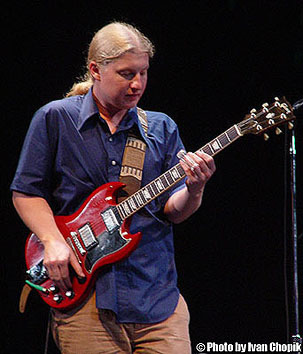 IC: How do you manage working with both the Derek Trucks Band and The Allman Brothers at the same time?
IC: How do you manage working with both the Derek Trucks Band and The Allman Brothers at the same time?
DT: You need to stay on the road all year (laughs). It just becomes really full-time. But you know, doing what we were doing with our guys, I didn’t really wanna let it go. I felt musically there was a big upside and a lot of freedom in what we’re doing. And the Allman Brothers – it just wasn’t something that you would turn down, so it ’s just a matter of making it all work.
IC: Speaking of musical freedom, your shows and CD’s demonstrate various musical influences. Can you tell us about these influences and how you integrate them into your style?
DT: I think with anything, if you really dig into it, whether it’s listening to it or getting into the culture around it, or digging in into the actual school of thought, it’s gonna come out in your playing at some point. With this band we’re able to really make it obvious. [These guys] are strong enough players, and versatile enough that we can try things like that. It’s really nice for me that if there’s anything that I’ve spent time working on, we can kind of incorporate it into what we’re doing and then get out there and as you play it live it starts to kind of meld into all the other stuff you do. It’s a great tool to have if you have musicians you can play with, that you’re willing to try things like that.
I think with most people, they have a lot of ideas, a lot of things they want to do, but they really don’t have an outlet to do it, or if they do they’re almost too tense to try things. So it’s nice being in a situation where you just throw shit up against the wall and if it sticks, great. If not, you move on. (laughs) Anything you’re really into, anything you really love, musically, if it really moves you and it really interests you, then the time listening, digging in, and learning what it’s about, I think it’s gonna come out in what you do. Whether it’s obvious to people or not, is another thing.
IC: Do you have any particular Eastern Indian influences that got you into that sort of style?
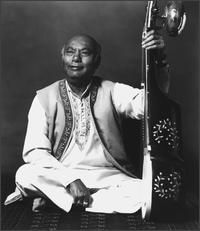
Ali Akbar Khan
DT: The first thing I really ever saw that intrigued me was video footage of Ali Akbar Khan and Zakir Hussein. I just remember that blowing my mind and just digging into that. And then a lot of the Qawalli music. Nusrat Fateh Ali Khan, the vocalist. Out in California Ali Akbar Khan has a college of music that’s been there for 40 or 50 years and we’ve been in to sit-in on a few classes, bought quite a few books there. Me and Todd [Smallie, bass & vocals], in the beginning, just really dug into that whole musical school of thought.
And most of it was oral for the longest time. I think it’s relatively new – 50 or 100 years that they’ve started actually writing it out. So most of it was just, either father to son or master to people, always passed down. The musical lineage in that school of music is really important. I’ve always found that fascinating, to have hundreds and hundreds or years [of musical knowledge passed down]. There’s a few sarod players that I’ve played with who are 11th generation, that’s six, seven hundred years, playing the same instrument, the same school of music. That’s some pretty wild stuff. (laughs)
IC: We’ve talked about your influences and what kind of style you’re going for right now. Do you think that it will change in the future? Do you think you’re heading in a new direction?
DT: Yeah, I hope it keeps changing. I think with this band we’re trying to get it to point where it’s its own thing, it’s got its own sound, it’s really obvious when you hear it who it is, and it’s kind of unique to the group. We hit the road quite a bit and we try to run material through the band all the time, just because I think the more you play the more sides of the other musicians you see, the more unique it becomes. Outside of that, there’s a thousand things I want to do. I’m trying to build a studio behind my house, so I’ll have more time to dig in and just experiment, whether it’s doing a straight-ahead record or doing a record the Indian classical guys are doing with … an orchestral thing. It ’s nice to have options.
IC: On the more technical side of things, I noticed that you don’t use a pick when playing and that you play slide guitar almost exclusively, is that right?
DT: Yeah, about 60 or 70 percent of the time I play slide.
IC: Could you tell us how you came upon this playing style and what kind of tunings you use?
DT: I started in standard tuning, but a few years into it I switched to open E, and that’s what I use all the time now. It’s just a matter of finding what felt good. It was easiest to express what I was hearing, and that came with getting rid of a pick, just playing with my hands. A lot of the stuff that I was really listening to was more geared towards slide playing, too.
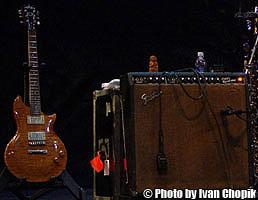 IC: A great part of the sound that you get comes from your hands and the way you pick the notes, but can you also tell us also what kind of equipment you use? I noticed that you play a Gibson SG through a vintage Fender amp. Are there some finer details that make up your signature sound?
IC: A great part of the sound that you get comes from your hands and the way you pick the notes, but can you also tell us also what kind of equipment you use? I noticed that you play a Gibson SG through a vintage Fender amp. Are there some finer details that make up your signature sound?
DT: No, it’s pretty simple. It’s an old Fender Super Reverb, like a 1965, and an SG just going straight into it. There’s cheap speakers in there, like Pile Drivers. They’re car stereo speakers and that makes the amp break up a little more. And a load of volume. That’s the only thing that’s at all different about it.
IC: You have a fairly large band, with quite a few musicians playing with you. How do you approach your rhythm playing in such a context, as opposed to playing in a trio, for example?
DT: Well, you have to utilize the space a lot more as a player, which I like. …and also if you have five, six guys on stage, they don’t all have to be playing at the same time. We’ve been trying to incorporate a lot more where, either certain parts of a song or certain parts of the set it’s duo, it’s a trio, it’s a quartet, it’s a quintet. So you can just kind of mix and match that way. And it gives a lot more sonic texture for people to listen to. It’s a lot more interesting, rather than everybody playing all night long, which you’re kind of in the habit of doing. When you have that many guys on stage and everybody is capable of carrying it themselves, then it’s nice to just free it up and strip it down at times. It also gives you, as a listener, different colors and it also gives your ears a rest.
IC: You mentioned that you have two New Year’s gigs coming up. Do you have any plans following this tour?
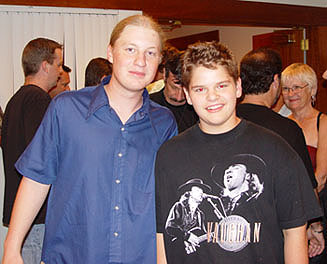
Derek Trucks and Ivan Chopik
DT: Yeah we’re a doing a show in Charlotte and then two in Atlanta for New Year’s. After that, maybe a week off and then we hit the road for the year. We’re pretty solid next year. We have a new record coming out in February and then just hitting the road like we usually do.
IC: Is there anything else you can reveal to us about this new record?
DT: We started breaking out a lot of the tunes on the last tour, so some of the stuff we did at the Avalon will be on the record. It’s pretty strong. It’s the first one I’ve ever played on that I can actually listen to just to listen to. (laughs) Usually you throw them as far away from yourself as you can when you get done with it.
IC: I guess that about wraps it up.
DT: Cool man. Well, I ’m glad you made it out to the Avalon. Hopefully we’ll see you next year. We’re gonna do that annually around the same time of year.



